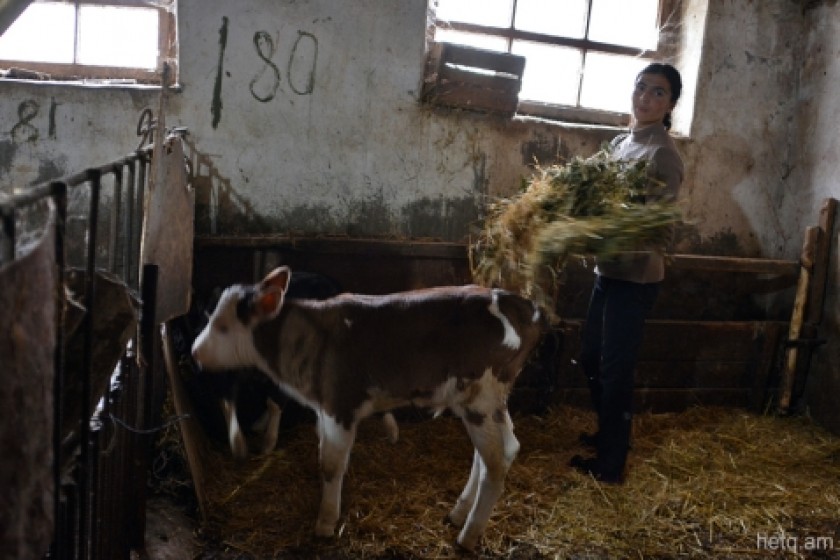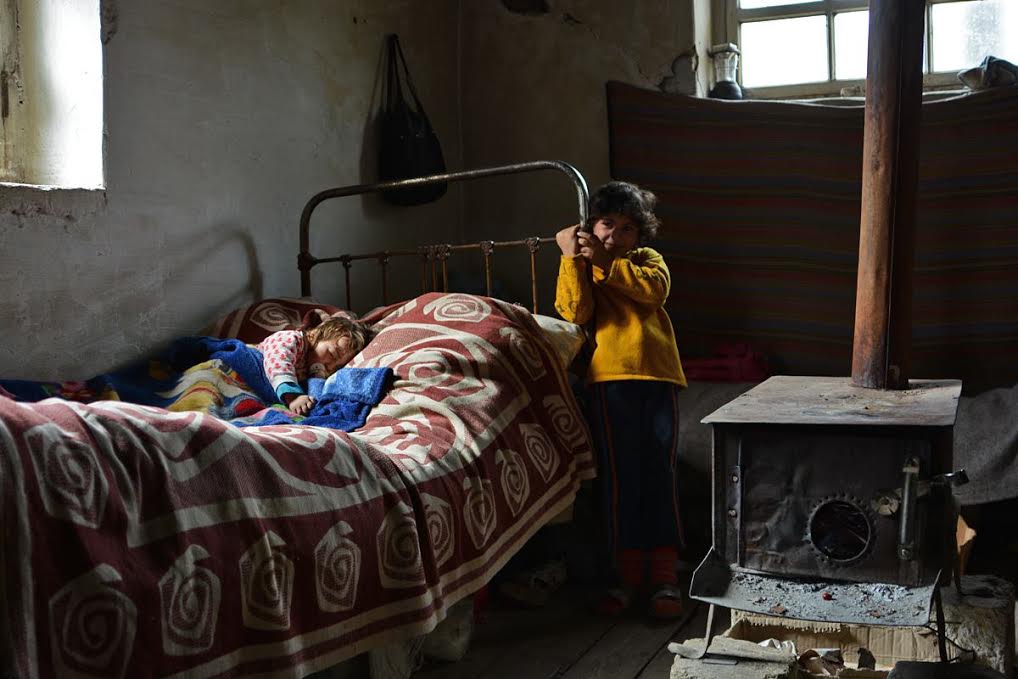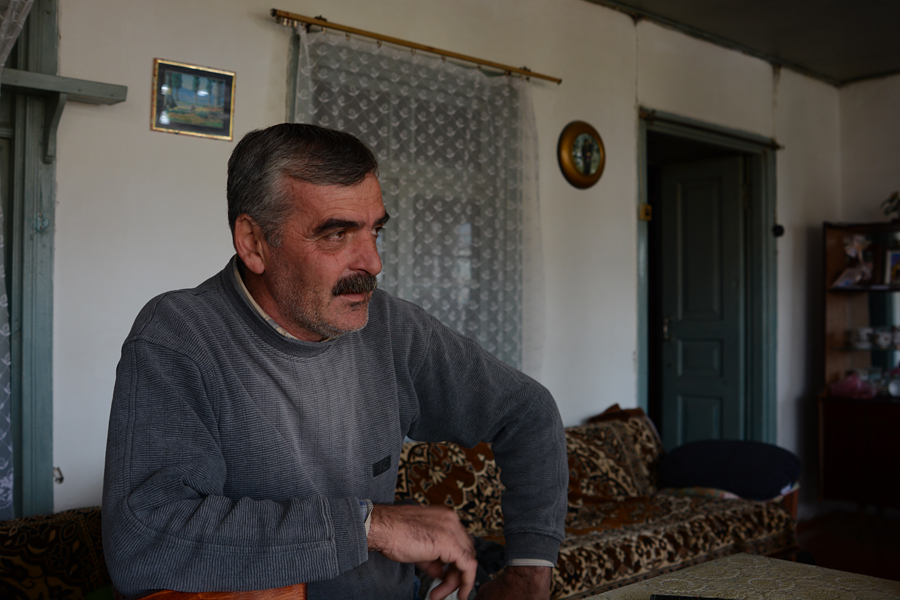
Artsakh Farmer: ‘Here you can either serve in the army or work in agriculture’
After Sourik Zargaryan, a resident of Berdashen village in Artsakh’s Martouni region was discharged from the army, he decided to try his hand at raising livestock.
He started with five cows and has increased the herd to seventy. It’s become his livelihood.
“If you live in Karabakh you have two options; either serve in the army or get into agricultural. Otherwise, you’ll go hungry,” says Zargaryan, adding that while he may not be rich he can provide for his family.
Zargaryan is like many others who got into agriculture after the collapse of the Soviet Union when all the collective farms shut down.
Before entering Berdashen, I spy some old farm sheds left over from the Soviet era. Locals, as well as Zargaryan, use the structures as barns.
When we arrived at the Zargaryan farm Sousanna, a farmhand, had already milked the cows and cleaned out the barn.
She and her husband couple moved from Etchmiadzin to Berdashen three years ago.
A room attached to the barn is home for Sourik, Sousanna and their two children.

Despite the cold weather, the wood stove wasn’t fired up. The youngest child was sleeping on one of the beds. The four year-old girl was sitting at her mother’s side watching her knit a pair of socks.
 Sourik tells me that he had to hire help when the herd got bigger. Sousanna's family, distant relatives of Zargaryan, relocated to Berdashen for the work.
Sourik tells me that he had to hire help when the herd got bigger. Sousanna's family, distant relatives of Zargaryan, relocated to Berdashen for the work.
While Sousanna was out feeding the calves and pigs, Mr. Zargaryan says that due to this year’s drought he hasn’t been able to collect enough hay for the livestock.
“I was able to collect 450 bales on my own. I have around 1,000 bales in total for the winter but I really need 2,000. My only hope would be a mild winter,” he says.
Sourik says that depending on the market, he switches from dairy to meat production. Right now, dairy products are in demand. For the past few years a company called Aradjnek has been purchasing milk at decent prices from village farmers.
“The meat issue is more problematic. Sure, we now have the meat collection point in Stepanakert but the prices it offers are very low. The only consolation is that they pay on time. You can sell directly to butchers but you always have to wait to get paid. You really have to follow up,” Sourik says.
Berdashen mayor Garik Sargsyan tells me that there are some 1,000 head of long horned animals in the village today.
Sargsyan explains that since ordinary water costs more in the shops than milk purchased from villagers, the latter have no interest in enlarging their animal herds.
 Videos
Videos Photos
Photos




Write a comment